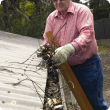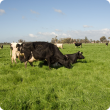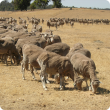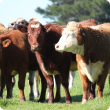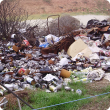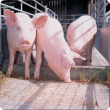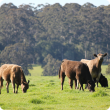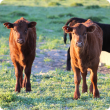Services
Search in Services
Filter services by topic
- (-) Remove Livestock management filter Livestock management
- Livestock & animals (45) Apply Livestock & animals filter
- Pests, weeds & diseases (32) Apply Pests, weeds & diseases filter
- Biosecurity & quarantine (31) Apply Biosecurity & quarantine filter
- Biosecurity (31) Apply Biosecurity filter
- Livestock biosecurity (30) Apply Livestock biosecurity filter
- Livestock health & diseases (29) Apply Livestock health & diseases filter
- Diseases (29) Apply Diseases filter
- Livestock disease surveillance (27) Apply Livestock disease surveillance filter
- Livestock species (26) Apply Livestock species filter
- Management & reproduction (16) Apply Management & reproduction filter
- Feeding & nutrition (15) Apply Feeding & nutrition filter
- Sheep (11) Apply Sheep filter
- Beef cattle (11) Apply Beef cattle filter
- Emergency animal disease preparedness (7) Apply Emergency animal disease preparedness filter
- Pigs (6) Apply Pigs filter
- Dairy cattle (6) Apply Dairy cattle filter
- Climate, land & water (5) Apply Climate, land & water filter
- Livestock research & development (4) Apply Livestock research & development filter
- Chemicals (4) Apply Chemicals filter
- Control methods (4) Apply Control methods filter
- Small landholders in Western Australia (3) Apply Small landholders in Western Australia filter
- Wildlife biosecurity (3) Apply Wildlife biosecurity filter
- Land use (3) Apply Land use filter
- Crops (3) Apply Crops filter
- Pastures (2) Apply Pastures filter
- Residues in livestock (2) Apply Residues in livestock filter
- Veterinary chemicals (2) Apply Veterinary chemicals filter
- Pasture species (2) Apply Pasture species filter
- Stockfeed (2) Apply Stockfeed filter
- Preventing residues (2) Apply Preventing residues filter
- Genetics & selection (2) Apply Genetics & selection filter
- Pasture management (2) Apply Pasture management filter
- Goats (2) Apply Goats filter
- Emergency response (2) Apply Emergency response filter
- Livestock movement & identification (2) Apply Livestock movement & identification filter
- Measuring and assessing soils (1) Apply Measuring and assessing soils filter
- Liming (1) Apply Liming filter
- Poultry & birds (1) Apply Poultry & birds filter
- Soil management (1) Apply Soil management filter
- Irrigated crops (1) Apply Irrigated crops filter
- Soils (1) Apply Soils filter
- Production & postharvest (1) Apply Production & postharvest filter
- Climate & weather (1) Apply Climate & weather filter
- Food, export & investment (1) Apply Food, export & investment filter
- Climate change (1) Apply Climate change filter
- Grains (1) Apply Grains filter
- Grains Research & Development (1) Apply Grains Research & Development filter
- Horses (1) Apply Horses filter
- Investment attraction (1) Apply Investment attraction filter

